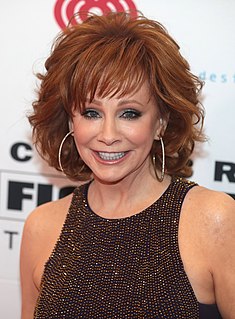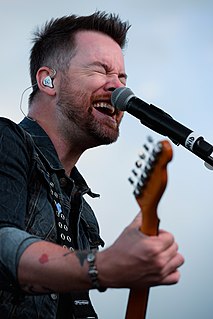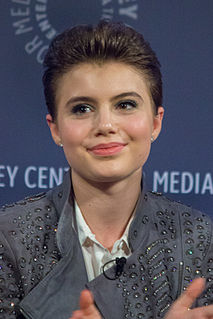A Quote by Paul Haggis
Independent films are very hard to get made, but I'm lucky enough to get them made, so I'm going to keep doing it. I like my independence. I like being able to tell a story the way I want to tell a story. I don't like developing it with a team. I like coming to a story and deciding whether I want to do it or not.
Related Quotes
I always believe that every song tells a story, so the last thing I want to do is edit out like the meat of the story. I would pick songs based off a), whether I felt like I could do anything with them, and b) whether I felt like I could keep the story intact. And then you sit in with one of the piano players and one of the vocal coaches and kind of work out your arrangements that way.
I've been making films with almost no dialogue (laughs), so sound and music become a very powerful character to tell the story. It's almost like with sound and music and images, it's your tool to tell the story, especially when I decide to structure the film in a way that usually goes against the conventions of the three-act structure which most films are made out of.
If you gauge how you're doing on whether somebody is responding vocally or not, you're up a creek. You can't do that; you kind of have to be inside of your work and play the scene. And tell the story every day. Tell the story. Tell the story. Regardless of how people are responding, I'm going to tell the story.
I don't ask my students to have studied film or any education in general. What I ask them is to come and sit and tell me a story, and the way they choose it and tell it, for me, the best criteria for whether they are right for making films. There's nothing more important than being able to tell your story orally.
We try to make films for people [that are] the films that we'd like to see. They're not easy to get made. They're hard to get made. You have to keep the budget low to get them made. But at the end of the day, I don't really worry about competition, because I don't really think of it that way. I don't feel like I'm in a race with anybody.
The best time to tell your story is when you have to tell your story. When it's not really a choice. But then, when you get that first, messy, complicated version down, you have to read it over and be very tough on yourself and ask, 'Well what's the story here?' If you're lucky enough to have someone you trust looking over your shoulder, he or she can help you if [you] lack perspective on your own story.
If you have to tell a story without speaking, it's sort of like - I come from a dance background, so it's like a ballet where you have to tell a story with just your body. I think that's really interesting to have to tell a story with just your face and your mannerisms, and I'd like to tap into that world.
Sometimes the music just has to tell the story without you trying to tell the story. It depends on the type of music you want to make. If it makes you feel good and party then you go with that. If it makes you feel like speaking on something real and doing a story then it's the beat just has to have the story.
I am very excited to work with people who have a strong vision of what they want. They're trying to tell a story, and they want to use me. I'm there to facilitate that. I really like that. I'm like, "Tell me where your frame is. Tell me what you want, what kind of story you want, and I will facilitate it." That's sort of my job, and it makes my work better when I'm working in that kind of a frame, and hopefully it's their work. It's incredibly collaborative, in the sense that you're working toward a common goal.





































